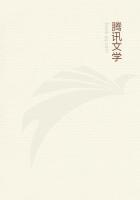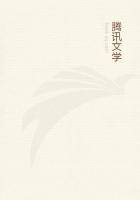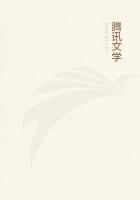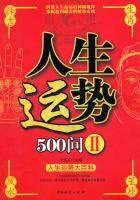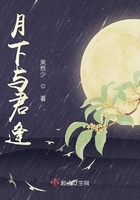(ll.411-424) "Hear, O King, that dwellest in Pagasae and the city Aesonis, the city called by my father's name, thou who didst promise me, when I sought thy oracle at Pytho, to show the fulfilment and goal of my journey, for thou thyself hast been the cause of my venture; now do thou thyself guide the ship with my comrades safe and sound, thither and back again to Hellas.Then in thy honour hereafter we will lay again on thy altar the bright offerings of bulls--all of us who return; and other gifts in countless numbers I will bring to Pytho and Ortygia.And now, come, Far-darter, accept this sacrifice at our hands, which first of all we have offered thee for this ship on our embarcation; and grant, O King, that with a prosperous weird I may loose the hawsers, relying on thy counsel, and may the breeze blow softly with which we shall sail over the sea in fair weather."(ll.425-439) He spake, and with his prayer cast the barley meal.And they two girded themselves to slay the steers, proud Ancaeus and Heracles.The latter with his club smote one steer mid-head on the brow, and falling in a heap on the spot, it sank to the ground; and Ancaeus struck the broad neck of the other with his axe of bronze, and shore through the mighty sinews; and it fell prone on both its horns.Their comrades quickly severed the victims' throats, and flayed the hides: they sundered the joints and carved the flesh, then cut out the sacred thigh bones, and covering them all together closely with fat burnt them upon cloven wood.And Aeson's son poured out pure libations, and Idmon rejoiced beholding the flame as it gleamed on every side from the sacrifice, and the smoke of it mounting up with good omen in dark spiral columns; and quickly he spake outright the will of Leto's son:
(ll.440-447) "For you it is the will of heaven and destiny that ye shall return here with the fleece; but meanwhile both going and returning, countless trials await you.But it is my lot, by the hateful decree of a god, to die somewhere afar off on the mainland of Asia.Thus, though I learntmy fate from evil omens even before now, I have left my fatherland to embark on the ship, that so after my embarking fair fame may be left me in my house."(ll.448-462) Thus he spake; and the youths hearing the divine utterance rejoiced at their return, but grief seized them for the fate of Idmon.Now at the hour when the sun passes his noon-tide halt and the ploughlands are just being shadowed by the rocks, as the sun slopes towards the evening dusk, at that hour all the heroes spread leaves thickly upon the sand and lay down in rows in front of the hoary surf-line; and near them were spread vast stores of viands and sweet wine, which the cupbearers had drawn off in pitchers; afterwards they told tales one to another in turn, such as youths often tell when at the feast and the bowl they take delightful pastime, and insatiable insolence is far away.But here the son of Aeson, all helpless, was brooding over each event in his mind, like one oppressed with thought.And Idas noted him and assailed him with loud voice:
(ll.463-471) "Son of Aeson, what is this plan thou art turning over in mind.Speak out thy thought in the midst.Does fear come on and master thee, fear, that confounds cowards? Be witness now my impetuous spear, wherewith in wars I win renown beyond all others (nor does Zeus aid me so much as my own spear), that no woe will be fatal, no venture will be unachieved, while Idas follows, even though a god should oppose thee.Such a helpmeet am I that thou bringest from Arene."(ll.472-475) He spake, and holding a brimming goblet in both hands drank off the unmixed sweet wine; and his lips and dark cheeks were drenched with it; and all the heroes clamoured together and Idmon spoke out openly:
(ll.480-484) "Vain wretch, thou art devising destruction for thyself before the time.Does the pure wine cause thy bold heart to swell in thy breast to thy ruin, and has it set thee on to dishonour the gods? Other words of comfort there are with which a man might encourage his comrade; but thou hast spoken with utter recklessness.Such taunts, the tale goes, did the sons of Aloeus once blurt out against the blessed gods, and thou dost no wise equal them in valour; nevertheless they were bothslain by the swift arrows of Leto's son, mighty though they were."(ll.485-486) Thus he spake, and Aphareian Iclas laughed out, loud and long, and eyeing him askance replied with biting words:
(ll.487-491) "Come now, tell me this by thy prophetic art, whether for me too the gods will bring to pass such doom as thy father promised for the sons of Aloeus.And bethink thee how thou wilt escape from my hands alive, if thou art caught ****** a prophecy vain as the idle wind."(ll.492-495) Thus in wrath Idas reviled him, and the strife would have gone further had not their comrades and Aeson's son himself with indignant cry restrained the contending chiefs; and Orpheus lifted his lyre in his left hand and made essay to sing.
(ll.496-511) He sang how the earth, the heaven and the sea, once mingled together in one form, after deadly strife were separated each from other; and how the stars and the moon and the paths of the sun ever keep their fixed place in the sky; and how the mountains rose, and how the resounding rivers with their nymphs came into being and all creeping things.And he sang how first of all Ophion and Eurynome, daughter of Ocean, held the sway of snowy Olympus, and how through strength of arm one yielded his prerogative to Cronos and the other to Rhea, and how they fell into the waves of Ocean; but the other two meanwhile ruled over the blessed Titan-gods, while Zeus, still a child and with the thoughts of a child, dwelt in the Dictaean cave; and the earthborn Cyclopes had not yet armed him with the bolt, with thunder and lightning; for these things give renown to Zeus.

